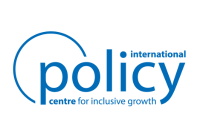The IPC-IG is a global forum for South-South dialogue on innovative development policies guided by a partnership agreement between United Nations Development Programme (UNDP) and the Government of Brazil, represented by the Ministry of Planning, Budget and Management (MPOG). The IPC-IG’s mandate is to promote the production and dissemination of studies and policy recommendations, the exchange of best practices in development initiatives and the expansion of South–South cooperation.
The leading voice for inclusive growth in and for the Global South
The IPC-IG was founded in 2004. Since 2013, the UNDP Brazil Country Office has offered operational support and its Resident Representative is the director of the Centre. The Brazilian Institute of Applied Economic Research (Ipea) hosts the IPC-IG and contributes substantively through the participation of its body of researchers in the Centre’s activities.
The Centre has been providing services and tools to strengthen institutional capacities of governments of the South; this includes working with issues of social protection, as well as the monitoring and evaluation of public policies.
Mission
The IPC-IG's mission is to promote policy dialogue and facilitate learning between developing countries around innovative social policies for inclusive growth. The innovative approaches to South South Cooperation carried out by the Centre revolve around three pillars:
- Knowledge Production: carrying out research and studies, such as policy analysis and evaluations;
- Knowledge Sharing: facilitating the exchange of innovative experiences and initiatives among countries of the South:
- Capacity Strengthening: providing and facilitating the collaborative construction of capacity-building activities and flows of knowledge among countries of the South.
Members:
Resources
Displaying 1 - 2 of 2The unresolved land reform debate: beyond state-led or market-led models
Sharp inequalities in the distribution of land remains a major cause of extreme poverty in many developing countries. Some instances are the result of ownership patterns inherited from colonial administrations, others are linked to the struggle for economic prosperity in the post-independence era.Landlessness is therefore a significant problem for the rural poor. Most remedies that have been undertaken previously have not yielded positive results, as can be witnessed in Southern Africa today.
The unresolved land reform debate: beyond state-led or market-led models
Sharp inequalities in the distribution of land remains a major cause of extreme poverty in many developing countries. Some instances are the result of ownership patterns inherited from colonial administrations, others are linked to the struggle for economic prosperity in the post-independence era.Landlessness is therefore a significant problem for the rural poor. Most remedies that have been undertaken previously have not yielded positive results, as can be witnessed in Southern Africa today.



